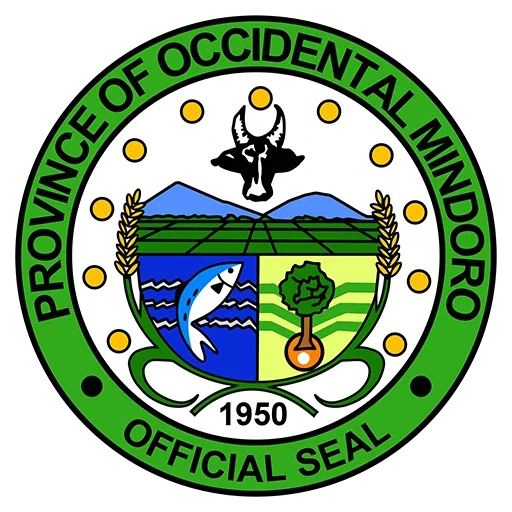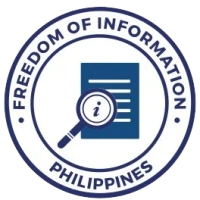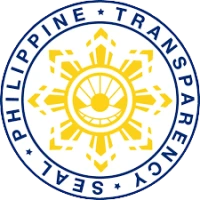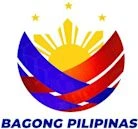In March 2023, President Ferdinand “Bongbong” Marcos Jr. appointed Governor Eduardo B. Gadiano as Chairperson of the Department of the Interior and Local Government (DILG) Regional Peace and Order Councils (RPOCs) in the MIMAROPA region. The appointment recognized Gov. gadiano’s outstanding leadership in promoting peace and security in Occidental Mindoro. His efforts have been key in building strong partnerships with the military and various government agencies, working together to create a safer and more progressive community for both the province and the country.
Governor Eduardo B. Gadiano’s leadership has led to significant improvements in peace and order in Occidental Mindoro, especially through the Provincial Public Order and Safety (PPOS) programs. A major achievement in 2024 was his support for the fight against illegal drugs, particularly through the BIDA Program. This initiative included the BIDA Fun-Run, an event that aimed to raise awareness about the dangers of drugs, and the BIDA Kabataang Malayan sa Droga youth forum, which promoted a drug-free lifestyle among young people. Another key project was the opening of the “Balay Silangan” Rehabilitation Center in Mamburao, which offers a safe space for individuals recovering from drug addiction.
Gov. Gadiano also ensured that the efforts to maintain peace and order were regularly evaluated. This was done through consistent meetings of the Provincial Peace and Order Council (PADAC). His office has also been instrumental in supporting law enforcement agencies, such as the Philippine Army and the Philippine National Police, by providing logistical and financial assistance, as well as helping fund infrastructure projects for these agencies. Thanks to his leadership, Gov. Gadiano and the PPOS have made substantial contributions to the security and stability of Occidental Mindoro. Their collaborative efforts with law enforcement and local government units have played a significant role in building a safer, more secure future for the province and the broader MIMAROPA region.
The Provincial Government of Occidental Mindoro, in adherence to Republic Act No.6713, also known as the “Code of Conduct and Ethical Standards for Public Officials and Employees,” directs its efforts through the Spiritual Development and Values Formation (SDVF) Office. This office plays a key role in fostering a culture of integrity, accountability, and ethical leadership within the provincial government, ensuring that these principles are consistently practiced by both officials and staff members.
To reinforce these values, the SDVF Office implements a variety of activities aimed at promoting good governance across the provincial government. Weekly and monthly sessions on values formation are held across different offices to ensure that ethical standards are embedded in daily operations. Additionally, programs such as the year-end assessment have been organized to strengthen the relationship between public authorities and spiritual leaders, further enhancing collaboration and shared values in governance. The office also introduced the Oath-Taking Program for volunteers, ensuring alignment with the office’s core principles.
Another important initiative is the One-Day Recollection Program, which emphasizes the significance of integrity and duty among government employees. This program encourages them to incorporate these values into their daily work, reinforcing their commitment to ethical service. A highlight of the SDVF Office’s efforts in 2024 was the Apaw Ignite, an event held during the Arawatan Festival. Apaw Ignite brought the community together for a night of praise and worship, serving as a vibrant expression of faith and unity. This event also highlighted the importance of the Values Formation Program in nurturing the spiritual and moral growth of the community.
Through its ongoing initiatives, the SDVF Office remains dedicated to fostering ethical leadership and promoting a culture of service, further advancing the development of Occidental Mindoro.
The Provincial Social Welfare and Development Office (PSWDO) of Occidental Mindoro continues to play a vital role in enhancing the lives of vulnerable sectors within the province. By providing support and advocating for the rights of marginalized groups such as senior citizens, persons with disabilities (PWDs), women, youth, solo parents, and others in need, the PSWDO ensures these individuals have access to essential services and opportunities for empowerment. Through its various programs, the PSWDO strives to build an inclusive society where every individual is given the chance to thrive and contribute meaningfully to their community.
* Trafficking in Persons (TIP) and Violence Against Women and Children (VAWC) Program:
This program focused on providing gender sensitivity training, skills development, and awareness initiatives to address issues such as trafficking and violence against women and children. It reached 594 beneficiaries, empowering them through education and support, ultimately working toward raising awareness and combating gender-based violence in the community.
*Support and Services for Persons with Disabilities
(PWDs):
The PSWDO launched various initiatives aimed at improving the quality of life for PWDs. These efforts included regular meetings of disability federations, awareness campaigns, livelihood programs, and offering cash incentives to indigent bedridden PWDs. The goal was to promote inclusion and ensure equal access to opportunities for persons with disabilities.
*Support and Services for Senior Citizens:
The office organized quarterly meetings of the Federation of Senior Citizens and provided livelihood programs and cash incentives. Activities like the Filipino Elderly Week celebration brought together over 600 beneficiaries, highlighting the contributions of senior citizens to society. The program helped protect their rights, foster independence, and encouraged active participation in community development.
*Knowledge, Skills, and Assistance (KSA) Programs for Solo Parents:
The PSWDO empowered solo parents through a series of consultation dialogues, financial literacy training, and livelihood skills development. The program aimed to support solo parents through a series of consultation dialogues, financial literacy training, and livelihood skills development. The program aimed to support solo parents in managing family responsibilities while improving their financial stability. these initiatives helped strengthen the support the network for solo parents in the province.
*Livelihood Support for Women’s Groups:
This program focused on providing marginalized women with the resources and skills necessary for economic independence. It included financial literacy seminars, livelihood training, and consultation dialogues with women’s associations. The initiative also featured skills training in areas such as handicrafts, agriculture, and food processing, aimed at improving the livelihood options for women.
*Back to School Program for Out-of-School Youth (OSY) and Child Laborers:
The program was designed to help reduce the incidence of child labor and provide educational opportunities for out-of-school youth. It provided financial support to 330 beneficiaries for their school allowances, ensuring they had access to the resources needed to continue their education. Monitoring and evaluation were key components of the initiative, ensuring that the youth remained on track toward a brighter future.
*Sustainable Livelihood Programs for Marginalized Sectors: The PSWDO offered consultations and livelihood assistance to disadvantaged individuals and cooperatives. This program provided tools, materials, and seed capital to empower marginalized group, helping them build sustainable businesses and improve their economic standing. The consultation also aimed to create action plans to address the specific challenges faced by these communities.
participation in community development.
*Knowledge, Skills, and Assistance (KSA) Programs for Solo Parents: The PSWDO empowered solo parents through a series of consultation dialogues, financial literacy training, and livelihood skills development. The program aimed to support solo parents in managing family responsibilities while improving their financial stability. These initiatives helped strengthen the support network for solo parents in the province.
*Livelihood Support for Women’s Groups:
This program focused on providing marginalized women with the resources and skills necessary for economic independence. It included financial literacy seminars, livelihood training, and consultation dialogues with women’s associations. The initiative also featured skills training in areas such as handicrafts, agriculture, and food processing, aimed at improving the livelihood options for women.
*Back to School Program for Out-of-School Youth (OSY) and Child Laborers: The program was designed to help reduce the incidence of child labor and provide educational opportunities for out-of-school youth. It provided financial support to 330 beneficiaries for their school allowances, ensuring they had access to the resources needed to continue their education. Monitoring and evaluation were key components of the initiative, ensuring that the youth remained on track toward a brighter future.
*Sustainable Livelihood Programs for Marginalized Sectors:
The PSWDO offered consultations and livelihood assistance to disadvantaged individuals and cooperatives. This program provided tools, materials, and seed capital to empower marginalized groups, helping them build sustainable businesses and improve their economic
standing. The consultations also aimed to create action plans to address the specific challenges faced by these communities.
*Programs for Former Rebels and Persons Who Used Drugs (PWUDs): The PSWDO implemented programs to assist former rebels and PWUDs by providing livelihood support, community engagement activities, and rehabilitation services. These programs aimed to reintegrate them into society and help improve their economic and social stability, focusing on long-term empowerment and rehabilitation.
*Bahay Pag-asa Rehabilitation Program for Children in Conflict with the Law (CICL): The Bahay Pag-asa program provided a secure space and rehabilitation services for children in conflict with the law. It offered skills development, life skills training, and family restoration activities. Additionally, the facility underwent key infrastructure improvements, including the installation of security systems to ensure the safety and well-being of the children.
*Special Drug Education Center (SDEC) and Halfway House for Former Rebels: These initiatives provided rehabilitation and reintegration support for both out-of-school youth and former rebels. The SDEC focused on combating drug abuse through education and preventative services, while the Halfway House provided medical and financial support to former rebels as they reintegrated into society.
former rebels as they reintegrated into society.
*Reproductive Health and Adolescent Health Programs:
These programs provided comprehensive reproductive health services and education, particularly for the youth. The PSWDO worked to raise awareness of reproductive health issues and provided training for counselors to improve the quality of services delivered in the province. The programs also worked on reducing child labor and supporting street children through psychosocial support and family development activities.
Each of these programs reflects the PSWDO’s ongoing commitment to addressing the needs of vulnerable sectors in Occidental Mindoro, improving their quality of life, and fostering an inclusive, supportive community.









